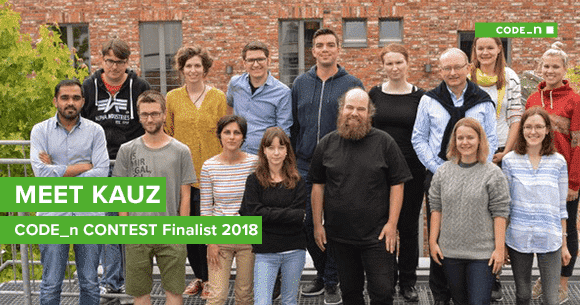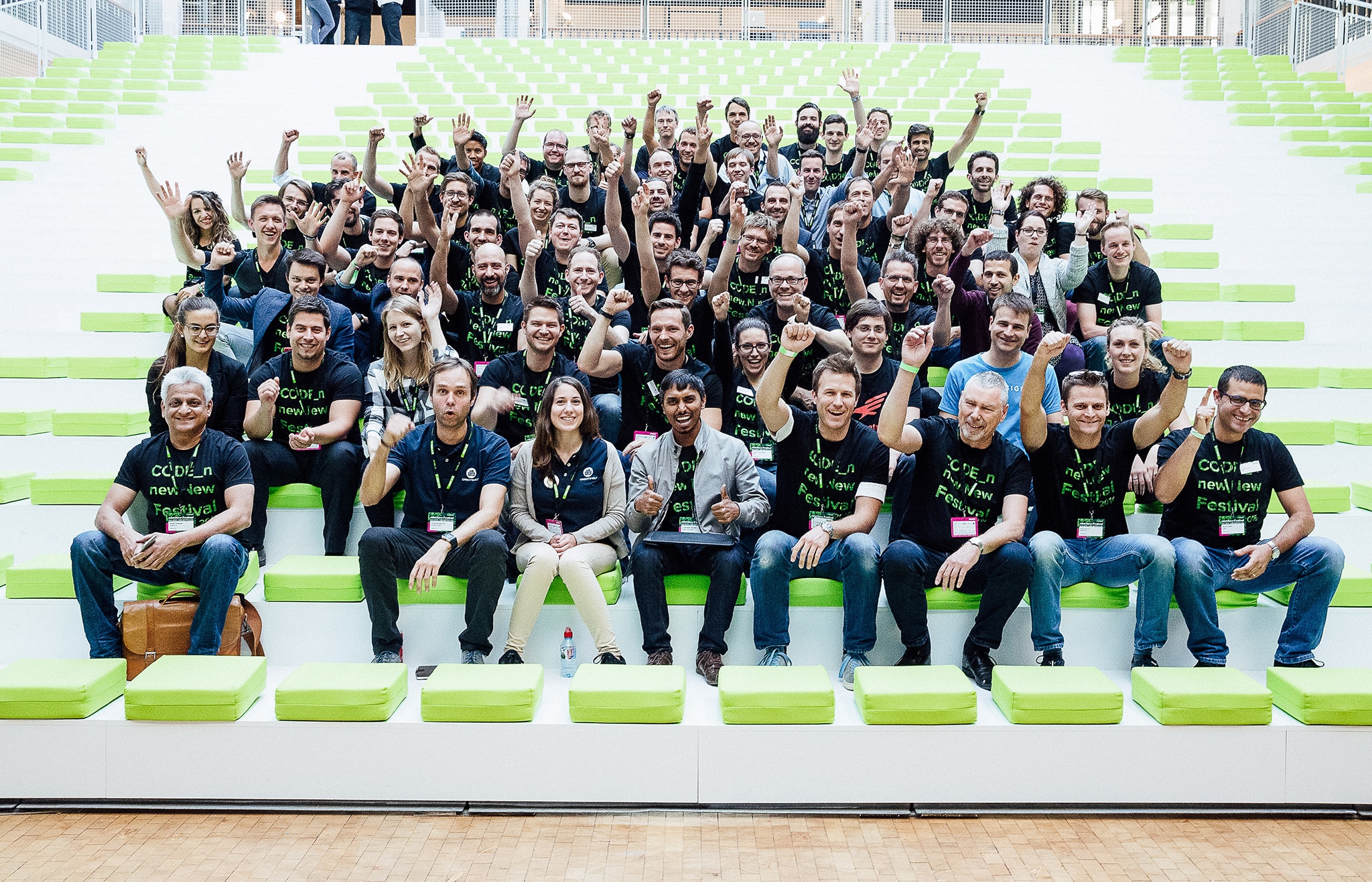MEET OUR CODE_N CONTEST FINALISTS 2018: Kauz from Germany
 The constant fear that AI will eventually take over human jobs reminds us of the industrial revolution era when fear of machines replacing humans ran rampant throughout the world. What proved to be right then and what is right now is that any new development in technology comes with the inevitability of some job losses while creating new ones – it has always been so. Our CODE_n Finalist Kauz proves that there’s more to how we see technology when we understand its potential in transforming even the simplest experiences we have during customer service interactions. The Düsseldorf-based company develops chatbots powered by NLP to enhance the customer experience by providing useful and personalized experiences. In this interview, Thomas Rüdel, founder and CEO of Kauz, tells us more about the vision for his startup.
The constant fear that AI will eventually take over human jobs reminds us of the industrial revolution era when fear of machines replacing humans ran rampant throughout the world. What proved to be right then and what is right now is that any new development in technology comes with the inevitability of some job losses while creating new ones – it has always been so. Our CODE_n Finalist Kauz proves that there’s more to how we see technology when we understand its potential in transforming even the simplest experiences we have during customer service interactions. The Düsseldorf-based company develops chatbots powered by NLP to enhance the customer experience by providing useful and personalized experiences. In this interview, Thomas Rüdel, founder and CEO of Kauz, tells us more about the vision for his startup.
Iulia: What is Kauz all about?
Thomas: We want to make customer service much better by ensuring friendly, competent help is available anytime, from any device. On a research level, we want to build “universal communication ability” or “Turing intelligence.” What this means is that our chatbots should be able to enter into meaningful conversations on any topic within their area of competence. So, we have a dual mission: to develop really effective and useful software, and to make meaningful contributions toward “friendly” AI.
Iulia: How did you come up with the idea?
Thomas: Since most of us are linguists, building a system that really understands language – one we can talk to – is a natural aspiration. Kauz was really born out of the belief that it is possible to build such systems, and this research interest is an important factor in what drives us to this day. In terms of applications, we have experimented with various ideas – e.g., a question-answering bot for the 2014 soccer world championships – but in the end we found that building apps for end-users is a challenging undertaking. Only a tiny fraction really earn money. So, we started focusing on customer service, where there is a clear and obvious need, plus paying customers.
Iulia: What are you trying to solve?
Thomas: I hate calling a call center, waiting in line, listening to music, and hearing a reassuring voice telling me “our next free operator will be right with you.” I would like my questions to be answered on the website I’m browsing anyway. The best way to do that is with a chatbot who understands me. If my problem is too complicated, the bot can always pass me on to a human agent. This method is win-win because it’s faster for users and less expensive for companies. On top of that, it guarantees 24/7 availability and companies can learn a lot about their customers’ problems.
Of course, the problem with many bots is that they don’t understand users. Current machine learning technologies are far too simple to work in more open-ended contexts like customer service or product advice. The alternative is then to force every conversation into a series of click options. Both experiences can be quite frustrating for users. We’re designing our bots in such a way that they can handle a lot of open questions, come with an understanding of the context, work with data and generate answers themselves if needed, and even do structured interviewing. These capabilities make for much better human-bot interactions.
Iulia: Just a few years ago AI was a scary concept – and it still is – but now a lot of people are asking questions because they want to learn more about AI and how it can enhance our experiences and life. How can you help people realize that AI is not about replacing humans but ensuring “humans stay first”?
Thomas: Chatbots in customer service are an obvious case in point. They make our lives easier by being available, friendly, and helpful (at least the kind of chatbots we are building). Of course, they will also replace some people currently working in call centers. All technological progress is about replacing certain forms of work. But at the same time, chatbots create many new jobs. And importantly, they give customer service agents the opportunity and time to focus on the more challenging and advice-intensive tasks – while chatbots handle the routine questions. A bank we are working with told us that now that the chatbot is the first customer contact, many of the customer contacts that are put through to human agents are much more valuable. They can now talk about how to invest new money instead of finding the login button. So, in the end, they find that the chatbot helps them to get closer to their customers.
Iulia: Thank you for the interview, Thomas!
Meet Kauz at the new. New Festival 2018 this fall, in Stuttgart!






Write a comment